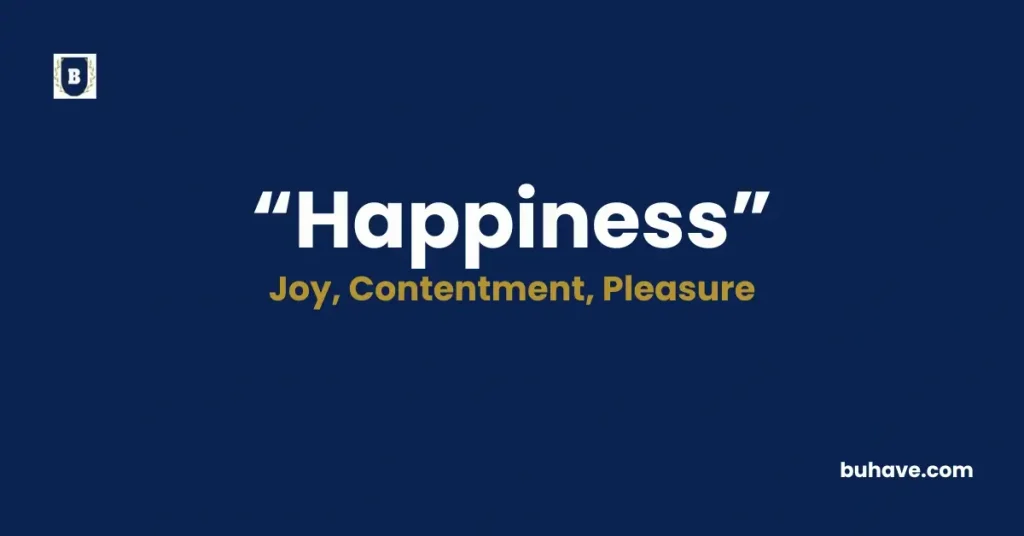The word ‘Happiness’ (Noun) refers to a state of joy, contentment, or well-being. In this guide, you’ll learn the full definition, synonyms, antonyms, etymology, and real-life examples of how to use ‘Happiness’ correctly in sentences.
Happiness Explained in Depth
A complete and detailed guide to the word ‘Happiness’ including meaning, definition, examples, etymology, synonyms, and antonyms.
Meanings of Happiness
Happiness means a feeling or state of well-being and contentment. It often includes joy, satisfaction, and an overall sense of fulfillment. Happiness can arise from achieving goals, enjoying meaningful relationships, or experiencing everyday pleasures.
Definition
Happiness is a noun that describes the emotional state of feeling joy, contentment, or pleasure. It is the opposite of sadness and often relates to positive experiences and a sense of well-being.
Etymology
The word “happiness” comes from the Middle English word hap, which means “luck” or “chance.” It evolved from the Old Norse word happ, meaning “good fortune.” Over time, it grew to mean not just luck but also the emotional state that comes from good fortune or success.
Example Sentences
- Spending time with family and friends always brings me great happiness.
- She found happiness in helping others and making a difference in her community.
- Traveling to new places gives me a sense of adventure and happiness.
Happiness Synonyms
- Joy
- Contentment
- Bliss
- Delight
- Pleasure
- Cheerfulness
- Satisfaction
- Well-being
- Elation
- Gladness
Happiness Antonyms
- Sadness
- Unhappiness
- Misery
- Discontent
- Gloom
- Melancholy
- Despair
- Depression
- Grief
- Unfulfillment
FAQs about Happiness
Here are some frequently asked questions (FAQs) about the word “Happiness”
1. What does “happiness” actually mean?
“Happiness” means a state of well-being and contentment. It’s the feeling you get when things are going well, you feel fulfilled, or you’re enjoying life.
2. Can happiness come from simple things?
Absolutely! Happiness can be found in small moments—a smile from a loved one, a beautiful sunset, a good meal. It doesn’t always require big achievements.
3. Is happiness permanent?
Happiness can be temporary or long-lasting. It often comes and goes depending on life circumstances, but it can also be cultivated through gratitude, mindfulness, and meaningful relationships.
4. How is happiness different from joy?
Happiness is a broader, ongoing state of contentment, while joy is often a more intense, short-lived burst of pleasure or excitement.
5. Can we control our own happiness?
To some extent, yes. While circumstances play a role, practicing gratitude, building positive relationships, and finding purpose can all contribute to lasting happiness.






